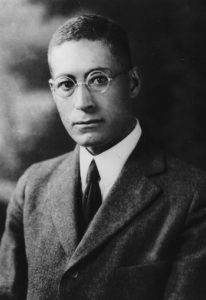
Dr. Dudley Woodard
*Dudley Weldon Woodard was born on this date in 1881. He was a Black mathematician.
His father worked for the U. S. Postal Service from Galveston, Texas. Woodard was a smart youngster whose curiosity was supported by his family. After finishing his primary education in his home state, Woodard attended Wilberforce College in Ohio, receiving a bachelor's degree (A. B.) in mathematics in 1903. He then received a B. S. degree in 1906 and an M.S. in mathematics at the University of Chicago in 1907. From 1907 to 1914, Woodard taught mathematics at Tuskegee Institute and then moved to join the Wilberforce faculty from 1914 to 1920.
In 1921, he joined the mathematics faculty at Howard University. During this time, he received his Ph.D. Mathematics in 1928 at the University of Pennsylvania. Woodward’s thesis was entitled: On Two-Dimensional Analysis Situs with Special Reference to the Jordan Curve Theorem. While at Howard, he was also selected as Dean of the College of Arts and Sciences, where he worked until 1929. Woodard became the second Black to earn a Ph.D. degree in mathematics. Woodard was married and had a son who later joined the faculty at Howard University. Dr. Woodard established the M. S. degree program in mathematics, making Howard University's mathematical program one of the best for study among America’s Historically Black Universities and Colleges (HBCUs).
He was the thesis supervisor for many of Howard's M.S. degree students. He also established the mathematics library at Howard. He established and sponsored several professorships and many scholarly seminars in mathematics. Among his colleagues and students, Woodard excelled and was very popular as a professor and administrator. He was highly respected by those who knew him in the mathematical sciences community. Former American Mathematical Society and International Mathematical Union president Deane Montgomery described Woodard as "an extremely nice man, well-balanced personally." Leo Zippin, an internationally known specialist in Woodard's field, said he was "one of the noblest men I've ever known."
Dr. Woodard was a brilliant mathematician and a man of dignity; he enjoyed life despite his racial environment. He used the phrase "black is beautiful" in the 1930s; he often ignored the "colored" signs and visited any men's restroom. He also ate at many "nice" restaurants and enjoyed the theaters of his choice in New York. He and his family once moved into what had been an all-white neighborhood because it was aesthetically nice and near Howard. Woodard devoted his entire professional life to promoting excellence in mathematics through advancing his students, teaching, and research. Dudley Woodard retired in 1947 and died July 1, 1965, in his home in Cleveland, Ohio.